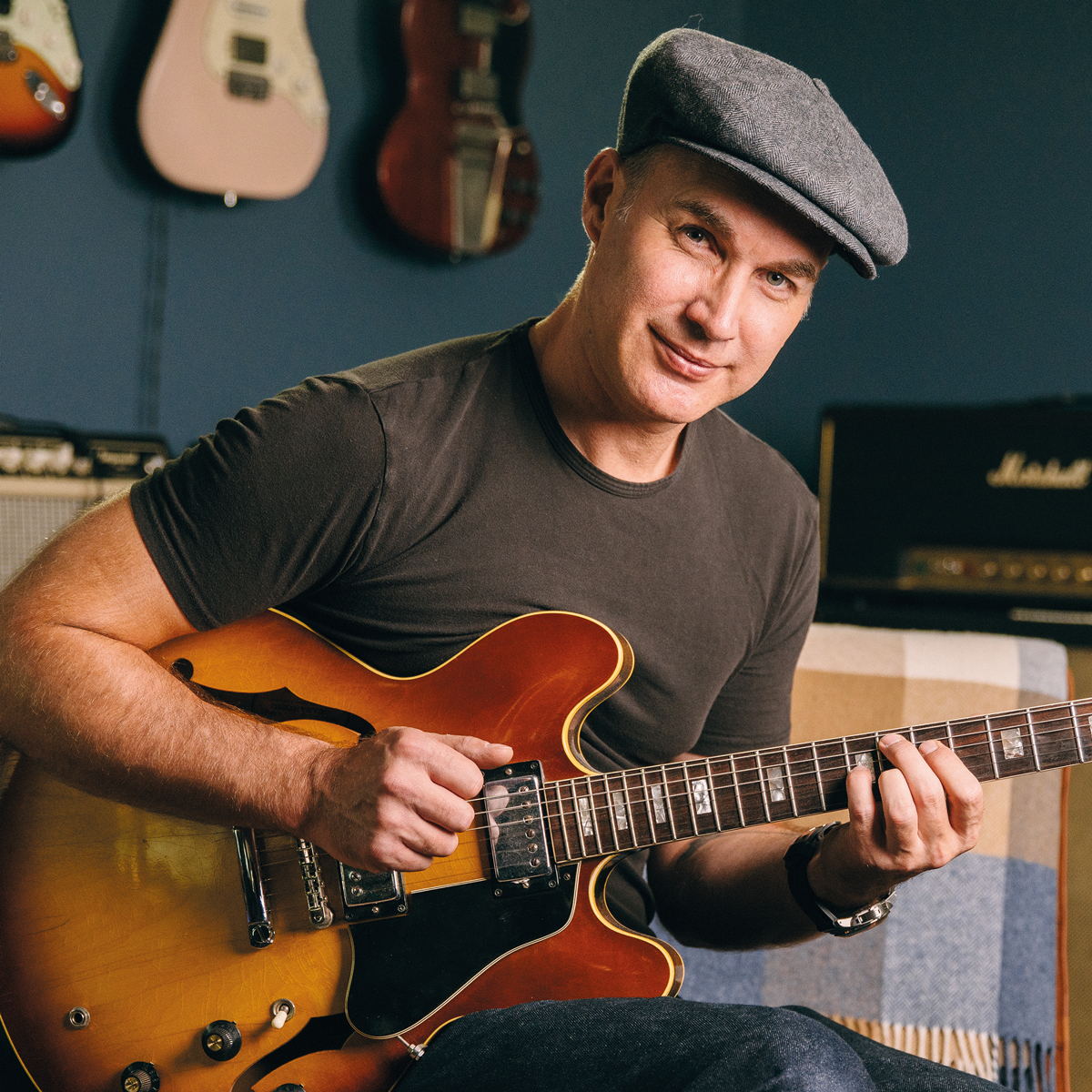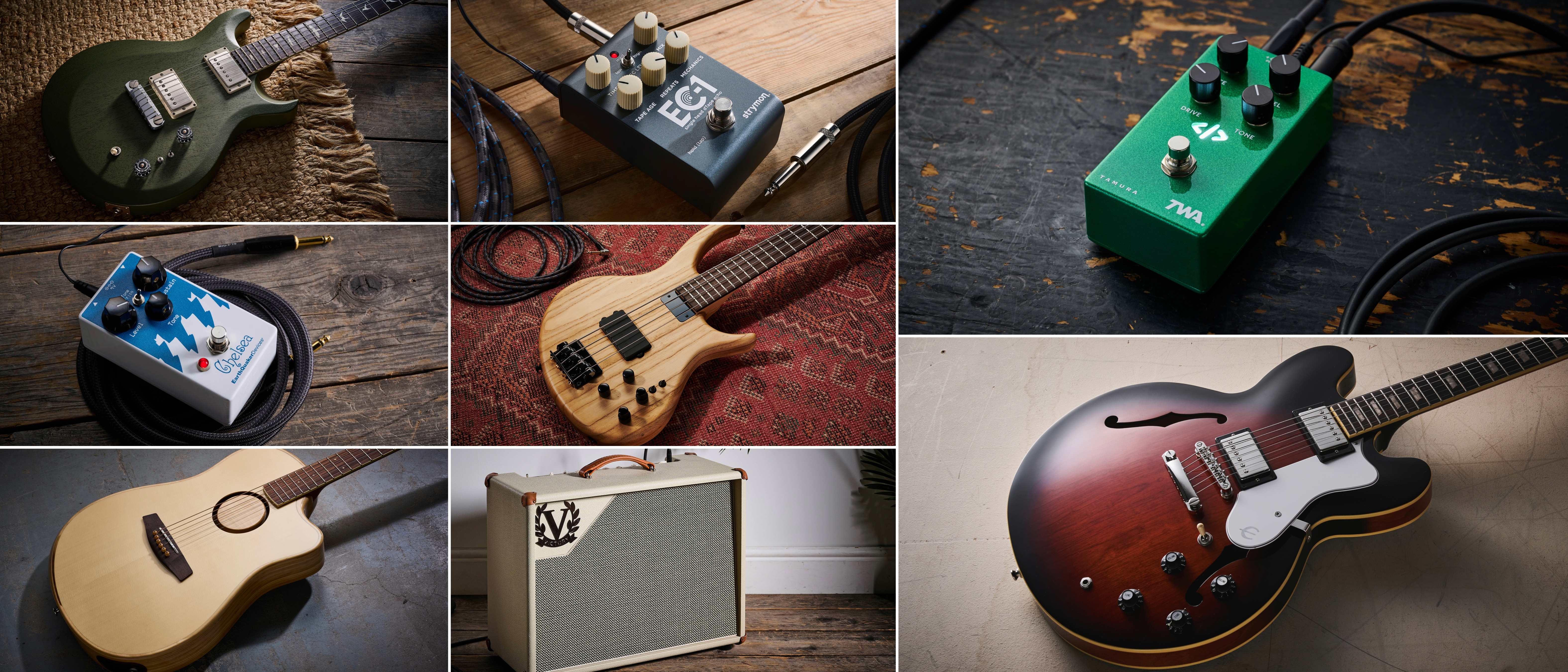“I know some guitarists that will work on a 30-second soundbite for days before filming it in a way that looks off the cuff”: How social media is affecting our perception of guitar playing
Be inspired but don't be intimidated by social media virtuosity, says respected guitar tutor Justin Sandercoe. Remember, these influencers are pros and you're only seeing them at their best

To raise some money for a charity project I offered to host some one-to-one Zoom lessons. I don’t do them often but it’s great to meet students and help get them through their struggles rather than making best guesses on how to help people I’ve never met.
But one thing that really shocked me was the negative effect of social media on all these men and women who were all intelligent, successful and over 40, but over half of them said that they ‘can’t just play naturally like those they see on social media’. That everyone they see plays so ‘effortlessly’ and ‘naturally’ and without mistakes or fumbles.
Let's get something straight. Social media presents what people want you to see, and that is most likely their best effort, not the raw truth. When I stumble on something that I think would be good for social media, I think a little about what it is and what its potential value is. It might well be that many people using socials are more spontaneous with posts, but I want to think it through and decide how to present it.
Quite often, if I post a clip of me playing something, it’s usually something I am working on already. I don’t tend to think about what would be good for social media, although I probably should, and I suspect many do. Recently I was working on an old blues tune called Trucking My Blues Away.
My social media manager has been on my case about adding more content so I thought I should share a clip of me playing it. So I leaned my phone on my coffee cup and played it though, but it was a bit lumpy. Did I post it? No, of course not! Why would I post a video of me mangling a song and have everyone think I wasn’t any good? So I picked out a small section that was okay, practised it more, then filmed it again.
Only I didn’t film it once. I filmed it half dozen times before it was good enough to post. It’s only that ‘best take’ that anyone sees, and it’s easy for us to forget that behind that one moment was a lot of work. That ‘effortless’ clip wasn’t effortless at all.
I hear from other guitarists that use social media about how much work they put into it. I know some people that will work on a 30-second soundbite for days before filming it in a way that looks off the cuff and natural. There are people that have built their careers from it. And as long as you are aware of the facts it’s not going to hurt you.
All the latest guitar news, interviews, lessons, reviews, deals and more, direct to your inbox!
I went to see Tommy Emmanuel last week. Incredible musician, probably the best acoustic guitarist that's ever lived. And while I’m watching him perform songs that combine incredible technique and beauty, I know that behind it there have been thousands of hours of practice and dedication to his craft. We all know that, right? He wouldn’t come out and play some half-finished new arrangement and make mistakes. He’s showing his best, as performers have since forever.
And in this new digital age, social media is the stage on which people perform. It might have started with people posting about their everyday lives, but most professional musicians are going to be posting their best playing, not their struggles.
It’s also worth noting that people usually only post positive things. It’s very easy to get the impression that everyone is taking amazing holidays, going to awesome gigs and having wonderful adventures all the time. But it’s just not reality.
Overuse of social media (any use?) can lead us to a distorted view of life, making us feel inadequate and insecure. I was worried about the kids growing up with this stuff, but recent conversations with visiting babysitters have left me thinking that they understand the game better than those of us that didn’t grow up with it.
They know people manipulate images and how to use filters, and because they’ve been doing it themselves their whole life, it’s just part of the game.
Most of the problems associated with social media come from comparing ourselves to others [check out our feature on Why comparing yourself to other guitarists is bad news for your playing, creativity and mental health for strategies on how to deal with this – Ed].
I hope this reminder of the truth behind socials might help you from getting down on your playing, and progress. I feel like sometimes I’m part of the problem; perhaps I should post more of my mistakes, but it feels unnatural not to want to show our best self to the world.
So think of social media as a stage where people are showing you a crafted perspective of their reality. Music, fashion, lifestyle and especially news, everything is delivered from someone’s perspective. Sure, some online people are dedicated to showing you reality, but remember it's still curated and calculated.
Watch everything with that perspective and I hope it helps you to stay positive about your own journey with the instrument. Remember, it’s not a competition and there’s no winner. Enjoying the ride is the prize!
Justin Sandercoe – aka JustinGuitar – is one of the world's foremost guitar tutors. His learning platform, JustinGuitar, was founded in 2003, and its launch on YouTube in 2006 quickly made Justin's lessons some of the most popular on the web. Today, JustinGuitar has over 1.5m subscribers on YouTube, and the website is home to over 1,300 free video guitar lessons. Tommy Emmanuel, Mark Knopfler, Steve Vai and Brian May are among the A-list names who recommend Justin's guitar courses.

